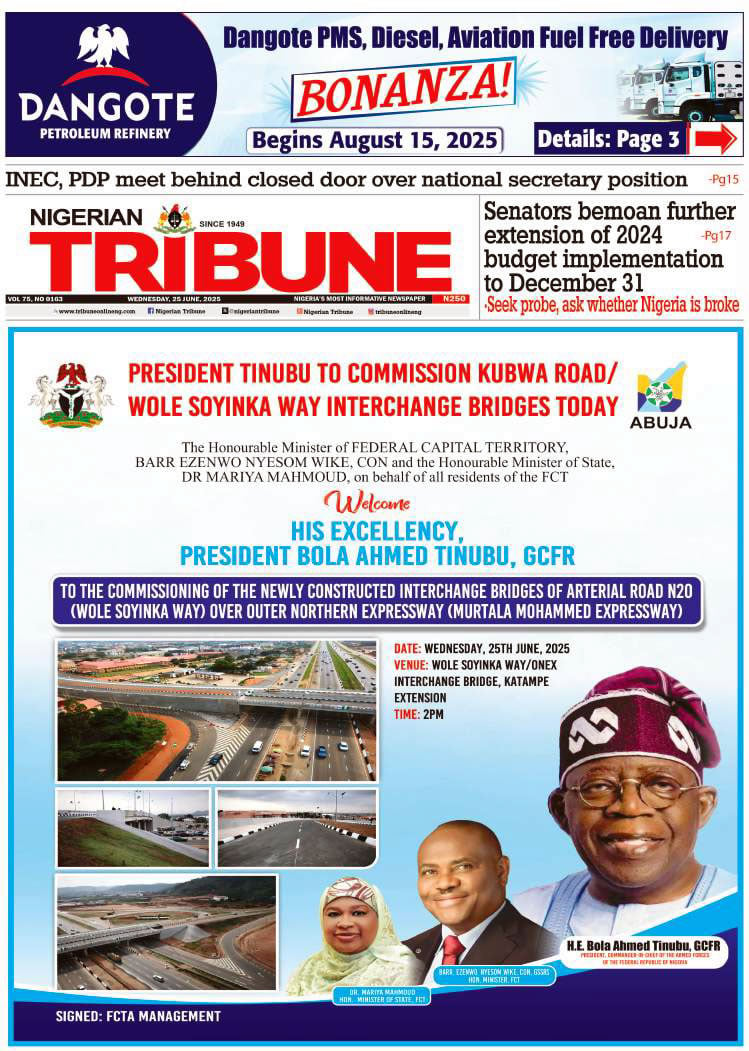
The question was borne out of the ubiquitousness of the scourge of corruption around the country over the years. You will recall that Buhari’s key campaign issues had revolved around the pledge to tackle corruption, the economy and insurgency (insecurity) issues.
I also knew that Buhari’s credential as the head of the military dictatorship that held sway between December 31, 1983 and August 25, 1985 could not help him as a democratic president. Whereas it was easy for the then iron-fisted rule of Buhari/Idiagbon to pigeon-hole politicians as the face of corruption, the trends these days showcase a nation whose fabrics are deeply soaked in corrupt tendencies.
Two years on, I have not really had cause to change my view that for President Muhammadu Buhari, corruption is surely one herculean task. Yes, the government’s propaganda machine immediately owned the corruption fight, dishing out a mix of facts and fiction (faction) and propelling the same to heights. Again, the administration also set up an advisory committee headed by media-savvy Professor of Law, Itse Sagay. But till this day, I cannot really fathom the exact job brief of this committee and how it has helped the cause of the people- the real victims of corruption.
One thing though, the combined efforts of the government’s media machine, the Sagay committee and the social medial ensured a flurry of soundbites around the corruption war at every stage. You are either being battered with information to the effect that one Nigerian paid back $90 billion looted funds (possibly from a back pocket) or that looted funds are now buried in mortuaries or septic tanks.
For a government that promised change and a frontal war against corruption, you would expect that the National Assembly would have been flooded with proposed amendments to anti-corruption laws and some new bills as soon as it got inaugurated. You would have thought that the National Orientation Agency (NOA) would have started a number of campaigns to re-orientate Nigerians on the need to tackle corruption to the ground. You would have thought that the open corruption in the Ministries, Departments and agencies would have become the target of the corruption war.
While you cannot but recognise the efforts of the Economic and Financial Crimes Commission (EFCC) in the war at hand, especially as it also joined the route of dishing out colossal figures in the name of looted funds, it is clear that the totality of activities thus far, rather romanticise the corruption war, while a fraction of activities are geared towards curbing corruption.
There is a clear distinction we need to make; is curbing corruption the target? Are we out to ring bells on the names of alleged looters? If the objective is to heckle alleged looters, then the strategy by the government and the EFCC can abide. But the Nigerian citizen needs more than the name and shame in this instance, especially where guilt is a difficult and unwinding chain through the courts. The Nigerian community needs to curb corruption practically.
Senate President Bukola Saraki was quoted as telling the government recently that it was merely engaged in funds recovery rather than curbing corruption. As a medical doctor, Saraki was apparently talking from his professional experience. You curb bleeding by getting to the source of the deep cut. So far, the agencies and the government have been running around some alleged looters and celebrating huge figures allegedly stolen in the media, largely to draw shock and ovation from the impoverished public.
How far can that take us as a nation? We do not need to go far to see the answers. The National Corruption Report released last week by the National Bureau of Statistics in collaboration with the UN office on Drugs and Crime indicated that Nigerians paid at least N400 billion in bribes between June 2015 and May 2016.
But there is a variant of an emerging corruption not many are talking about yet. This is being coordinated by the Federal Ministry of Education. It all revolves around the conduct of National Common Entrance, which takes students into the Unity Schools.
In the previous years, we have heard of discriminatory cut-off marks in line with the nation’s Federal Character and the classification of some states of the federation as Educationally Less Advantaged.
Over the years, many have condemned the development, which sees a student score 60 per cent and miss admission while those with two percent are admitted. But the Ministry of Education this year has taken the incongruous formula to some grotesque heights.
After the conduct of the Common Entrance examinations by the Minna-based National Examinations Council, prospective students were not shown their marks. It was understood that the Ministry under Mallam Adamu had instructed that the details are only forwarded to the Ministry, whose agents only published list of admitted students. No one knew the cut-off marks, as none was published.
What this sort of black market admission process portends is even more dangerous than the much-criticised quota system. It means that admissions into the Unity Schools are not based on any standards other than favouritism and nepotism. And to allow children go with the feeling they can cheat others so early in life, while the hardworking ones are told they can be cheated with impunity. These are clear fertility ingredients for enduring corruption, if not hatred for the nation. It is sad that we are inflicting these on children who, whether we like it or not, are the leaders of tomorrow, shows the extent to which we want corruption ingrained in the system. Can we really build a system that defrauds innocent children just because their parents don’t work around a particular Ministry? I doubt.





